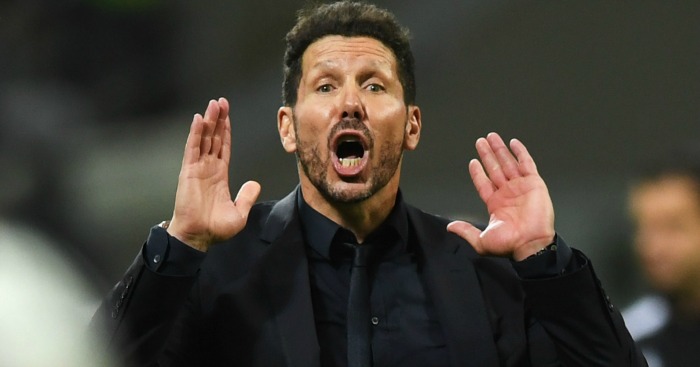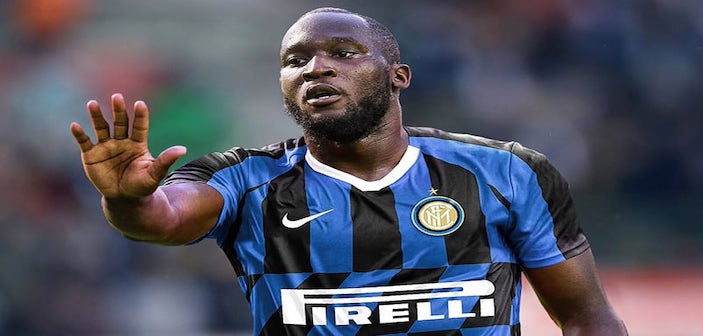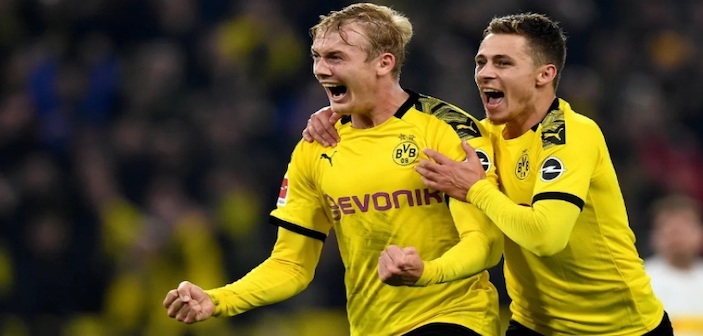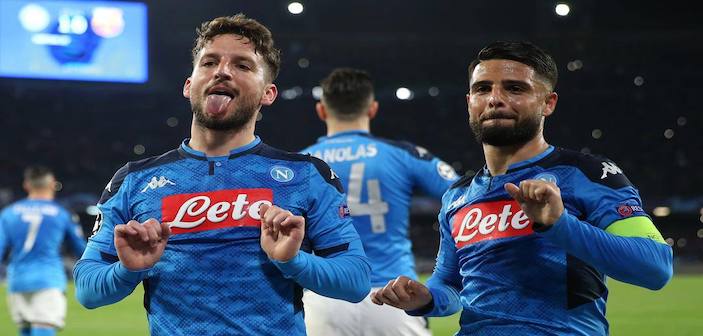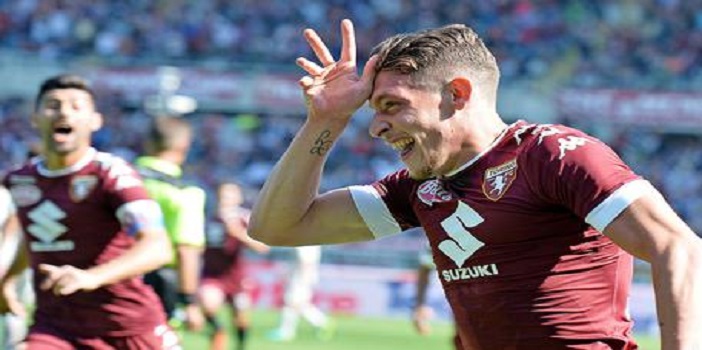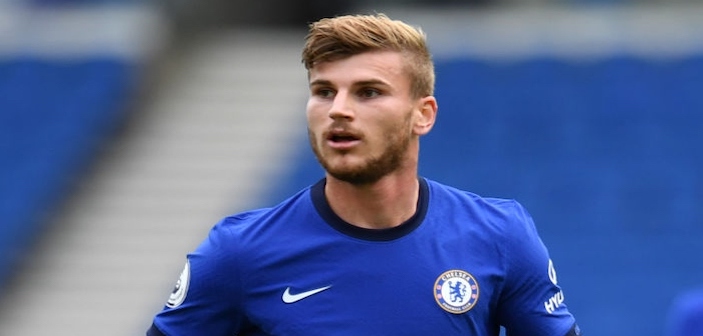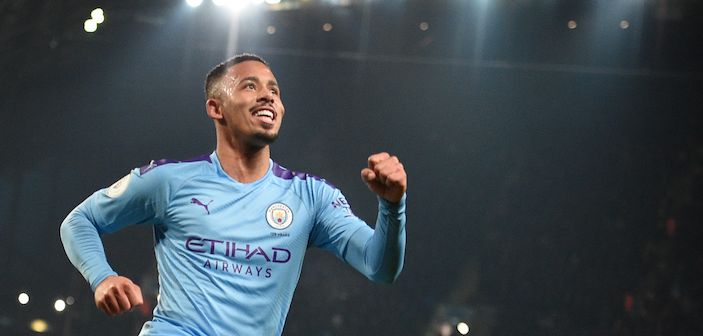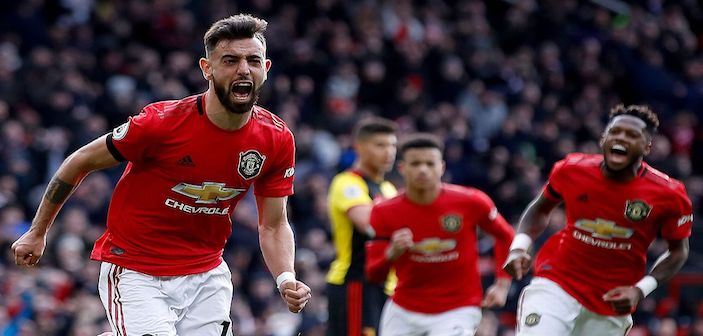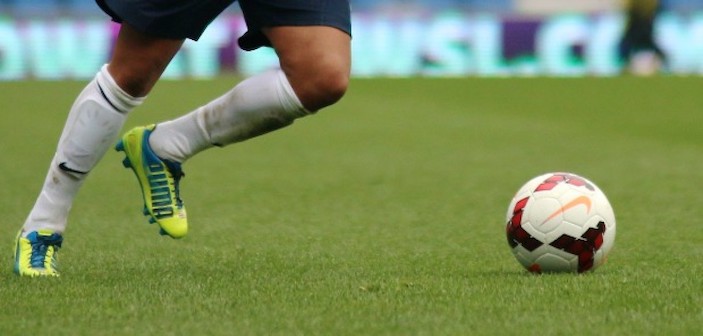MADRID-based journalist Brendan Boyle (@BrendyBoyle) ponders whether Diego Simeone’s tenure with Atletico Madrid has run its course.
Is Simeone the problem with Atletico’s transition?
Huge player turnover has been attributed as the key reason for Atleti’s stuttering start to the season but the same major flaw has existed long before the arrival of João Felix, Kieran Trippier and co.
When it’s all said and done, Diego Simeone will rightly be regarded as Atlético Madrid’s greatest ever coach. What he achieved during a period which coincided with the prime of both Lionel Messi and Cristiano Ronaldo was truly miraculous. And perhaps his greatest legacy will be that Atlético Madrid fans now expect their team to challenge for major honours.
Nobody forgets that El Cholo picked the team up from the dirt and oversaw the most successful era in the club’s history but past achievements should not make Simeone exempt from any sort of criticism or questioning.
Fans cannot continue to live in a state of never-ending gratitude; like any walk of life, what matters most is the here and now, and this is even more pertinent in the cut-throat world of modern football.
The club is growing exponentially off the field and so too is the divide between those who are for and against the Argentine coach.
On the road (to nowhere)
Atlético have scored 16 goals in 16 league games – the worst start to a season in terms of goals in the club’s history – and Marca say that “without goals there can’t be a transition.” However, for anyone who has regularly suffered through Atlético games will know that the rot had set in long before this summer.
Mind-numbing, low-scoring draws on the road are nothing new; it’s just that in the past Simeone had a Antoine Griezmann or Diego Godin to turn a dismal draw into an undeserved win. And if Simeone’s men fell behind, forget about it: the last time Atlético Madrid came from behind to win an away game in La Liga was 9th April 2016 at Espanyol.
The problems which the team are experiencing are nothing new and Simeone’s ability to develop a more progressive game plan has been questioned for years now and it is more than fair to ask the question: is Simeone capable of reinventing himself?
Simeone acknowledges that the team is undergoing a transition but he has, in fact, been resisting against a transition for the last three years as the core of his great team – who Simeone has referred to as “my men” – has withered away.
Let’s not kid ourselves; we all know that Diego Simeone has never been a bastion of free-flowing, intricate or lightning counter-attacking football. Very little has changed at Atlético Madrid since Simeone’s arrival in January 2011 apart from those pulling on the red and white shirts, and therein lies the problem.
Timing is everything – the grit is gone
A collection of players like Gabi, Godin, Juanfran, Diego Costa, Koke, Felipe Luis, Arda Turan, Raul Garcia, Fernando Torres and Griezmann coming together under the tutelage of Simeone might never again be repeated. They were the perfect collection of players at the perfect moment: they were willing to put the team above themselves, fight and scrap until the final whistle but it was also an extremely talented, ruthless bunch of players – it was the perfect fit.
Over the past few seasons, Atlético have continued to lose leaders and, looking at the squad right now, there is a clear lack of good old-fashioned bastards – the masters of the dark arts. Atlético are no longer a nightmare to play against; they work hard but they are no longer the win-at-all-costs dogs who used every trick in the book to get over the line and those small margins make all the difference in a Simeone system.
Very few teams in the history of football have stumbled upon such a magical concoction as los rojiblancos between their resurgence under the Argentinian and the final league game against Athletic Bilbao in the Vicente Calderon. Truth be told, the dying embers of pure cholismo as we knew it were extinguished by the backdraft of the door to the old stadium as it closed for the last time.
Hurtful departures
Some of the old guard stayed on to help with the transition to the new stadium which, all in all, has been a relative success considering the stark location change. The squad transition, however, was always going to be more of a challenge because Diego Simeone does not sell a complex system of attack or defence to his players – he sells a state of mind and nowadays it is becoming more and more difficult to find players who are will to buys ideals like sacrifice and selflessness.
Last summer, Rodri – earmarked as the bedrock of the Atlético Madrid 2.0 – decided to leave the Spanish capital to join Pep Guardiola at Man City only 12 months after returning to the club. The decision of Griezmann to move to Barcelona did not surprise but the departures of Lucas Hernandez and Rodri did – and they hurt Simeone.
In an interview with El Larguero radio back in October, he remarked how Lucas Hernandez was the departure which hurt the most ‘because he was one of our own, from the academy.’ Was Simeone a factor in their decision to leave? Was it the thought of another four or five years of playing in the same, mind-numbing way? We will probably never know.
The decision of two key, young players to abandon Atlético rightly raised a lot of questions, not only about the club’s dubious release clause policies but, more importantly, about Simeone himself and whether cholismo as we knew it is now well past its sell-by date.
Surely Simeone knows much better than us that the old days are gone and that trying to recruit a new squad to perform the same old functions is wishful thinking. Football has changed tremendously in the last five years alone and, if he is to reach for previous heights, Simeone too needs to evolve.
People often forget that great managers of years gone by realised the need to reinvent themselves. Alex Ferguson oversaw numerous player cycles during his team at the helm at Old Trafford, realising that the system which worked for Eric Cantona and Andy Cole was not the way to get the best out of Wayne Rooney, Cristiano Ronaldo and Carlos Tevez, for example.
More importantly, he realised the importance of a new voice and fresh ideas in the dressing room and worked with a number of top coaches. If this was the NFL, I would be advising him to hire a new offence coach but something does need to change.
Fair criticism
Much of the criticism levelled towards Simeone is generally fair, and Friday night was another illustration of why fans are growing increasingly impatient. We all know that success breeds expectation and expectation more often than not leads to disappointment. But there is only so much of a system containing four central midfielders and little creation until the latter stages of games that fans can take.
Watching the men in red and white is, quite frankly, rarely a rewarding experience, even less so when they’re on the road. The first 45 minutes will see the compact midfield shuffle around in their own half, with little ambition and virtually zero creation. The second half is usually much livelier as Simeone urges his men to increase the tempo and try to gain territory high up the pitch. A central midfielder will be replaced by a wide-attacker and Atleti will huff and puff; sometimes they score, very often they don’t.
Whereas most decent teams have a pre-determined gameplay of how they aim to put the round leather thing past the opposition goalkeeper at some stage during the 90 minutes, Atlético do not. And when they do eventually get into a rhythm, they’ve already wasted a large chunk of the game. It’s unnecessary to point out that if you have less time to attack, you are more inclined to score less goals.
Marca said in the aftermath of Friday night’s draw, “He (Simeone) can’t do more. He can’t run onto the field and score goals.” This is false.
Former Irish TV pundit and ex-Leeds legend John Giles always used beat the same drum about how teams should “keep doing their stuff.” Essentially, he argued that a team should have a defined strategy from the first minute to the last, lauding teams like Pep’s Barca who, even if winning 5-0 or losing in the final minute, continued to play their game, probing for openings, controlling the game instead of leaving it to chance.
Be it a pick and roll in basketball, a lineout in rugby or a serve and volley in tennis, if you do something enough times you don’t even have to think about it. However, most of Simeone’s attack is left to chance, luck. There is no apparent coherent movement or positional interchangeability and they are now one of the most predictable teams in La Liga.
Atlético continue to play in pretty much the same way but this Cholismo-light is not enough against teams who are now fitter, more athletic and more tactically astute.
Attacks based on individual moments are unsustainable. I keep hearing the old cliché of “They just need a bit of fortune and the goals will come.” This is also simply false.
There will be no sudden improvement in goal return numbers unless a clear strategy of attack is defined and this will require a revamp or reshaping of the midfield. Apart from being club captain and an uplifting voice, it’s hard to define what it is exactly that Koke does and his drop in form over the past 18 months has been reflected at a national team-level, where he has fallen alarmingly down the pecking order.
Transfer busts
Atlético Madrid fans are at a crossroads between sentiment and ambition – not too dissimilar to Arsenal and Arsene Wenger – but the club itself are more than happy with Simeone’s work – as long as he keeps delivering Champions League football.
Of course, overseeing such a huge player turnover is never easy but perhaps instead of moulding and changing the behaviours and instincts of players like João Felix and Renan Lodi, maybe Simeone should think about meeting the players halfway and changing himself.
How many more Yannick Carrasco (€25m), Nico Gaitan (€25m), Thomas Lemar (€70m) busts are the board going to tolerate before they decide enough is enough? They spent €126m on João Felix; what happens if he struggles for the rest of the season? And the next? Teams do not spend that type of money in the hope of striking gold – they expect immediate shiny nuggets to surface.
All this talk of transition has focused largely on the volume of player turnover, and that is fair, but perhaps the most important transition has already been failing since moving to the Wanda Metropolitano: Diego Simeone’s battle with time and change, and with each passing week it feels like Atlético are getting closer to a time for change.
This piece was published on 9th December 2019.
TOPICS European Football